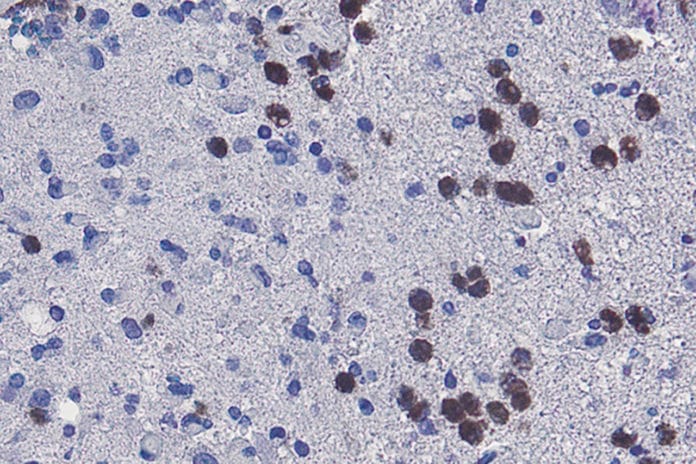WBCs, also called leukocytes, are an essential part of the immune system. These cells help fight infections by attacking bacteria, viruses, and germs that invade the body.
A study came out by Penn State College of Medicine suggests that a specific type of white blood cell can cause brain cancer tissues to die. This is good news. And the bad news is that a large number of these tissue deaths correspond to poor survival in patients with aggressive glioblastomas.
In this study, scientists studied the causes of this tissue death, called necrosis. It was known that lack of oxygen due to poor blood supply from rapid tumor growth might cause necrosis, but scientists in this study have investigated the molecular processes that cause this tissue death.
Wei Li, assistant professor of pediatrics and biochemistry and molecular biology, said, “Glioblastoma patients with higher degrees of necrosis have a poor chance of survival. We hope insight into the processes that drive this tissue death can help us develop new therapeutics to improve outcomes for these patients.”
Scientists discovered that ferroptosis, a specific type of regulated cell death, caused tissue death. They examined tumor tissue samples from animal models of glioblastoma under a microscope. They found that neutrophils, a type of white blood cell, were present in the same areas as dead tumor cells.
To establish whether these cells were essential for the tissue death process, they diminished the number of neutrophils in animal models, which then decreased the measure of necrosis in those cancer models. They also isolated these white cells and tried them against cancer cells in a lab, and found that the presence of neutrophils kept the cancer cells from thriving.
Li said, “We confirmed our theory on the role of neutrophils in necrosis by evaluating glioblastoma patient data. A high number of neutrophils and the presence of genetic signals of ferroptosis were associated with pathological evidence of necrosis and predicted poor survival in patients.”
To get a better idea on why tissue death was beneficial to tumor progression, scientists studied glioblastoma patient data sets. They found that the dead cells secrete molecular signals that may help tumor cells grow.
In future studies, scientists hope to determine how the white blood cells that spur on the tissue death arrive at the tumor, to begin with.
Li said, “tissue damage from the tumor growth may be causing the neutrophils to arrive, but that further studies are needed. more research is needed to understand better how necrosis promotes cancer growth.”
Journal Reference:
- Yee, P.P., Wei, Y., Kim, SY. et al. Neutrophil-induced ferroptosis promotes tumor necrosis in glioblastoma progression. Nat Commun 11, 5424 (2020). DOI: 10.1038/s41467-020-19193-y
